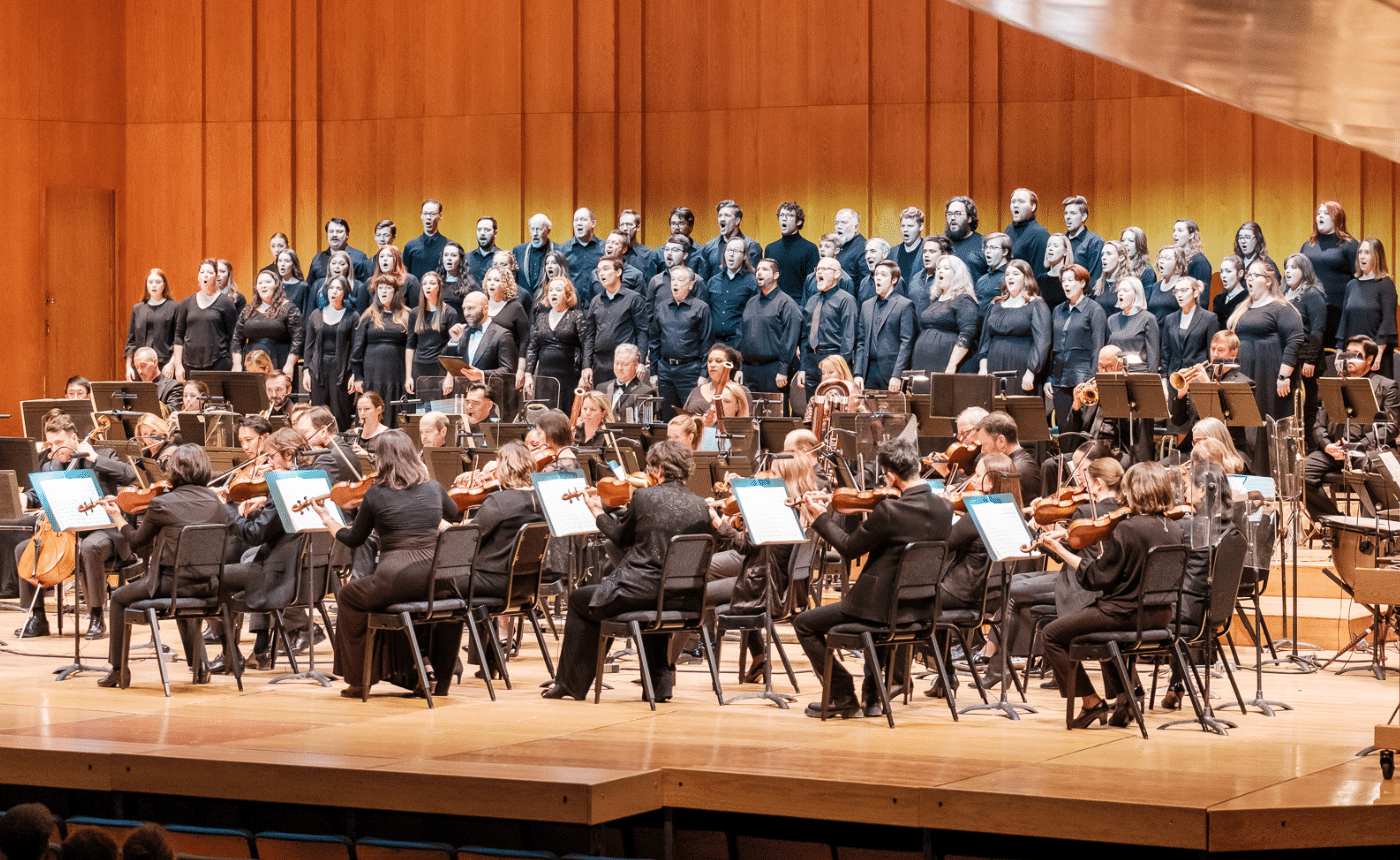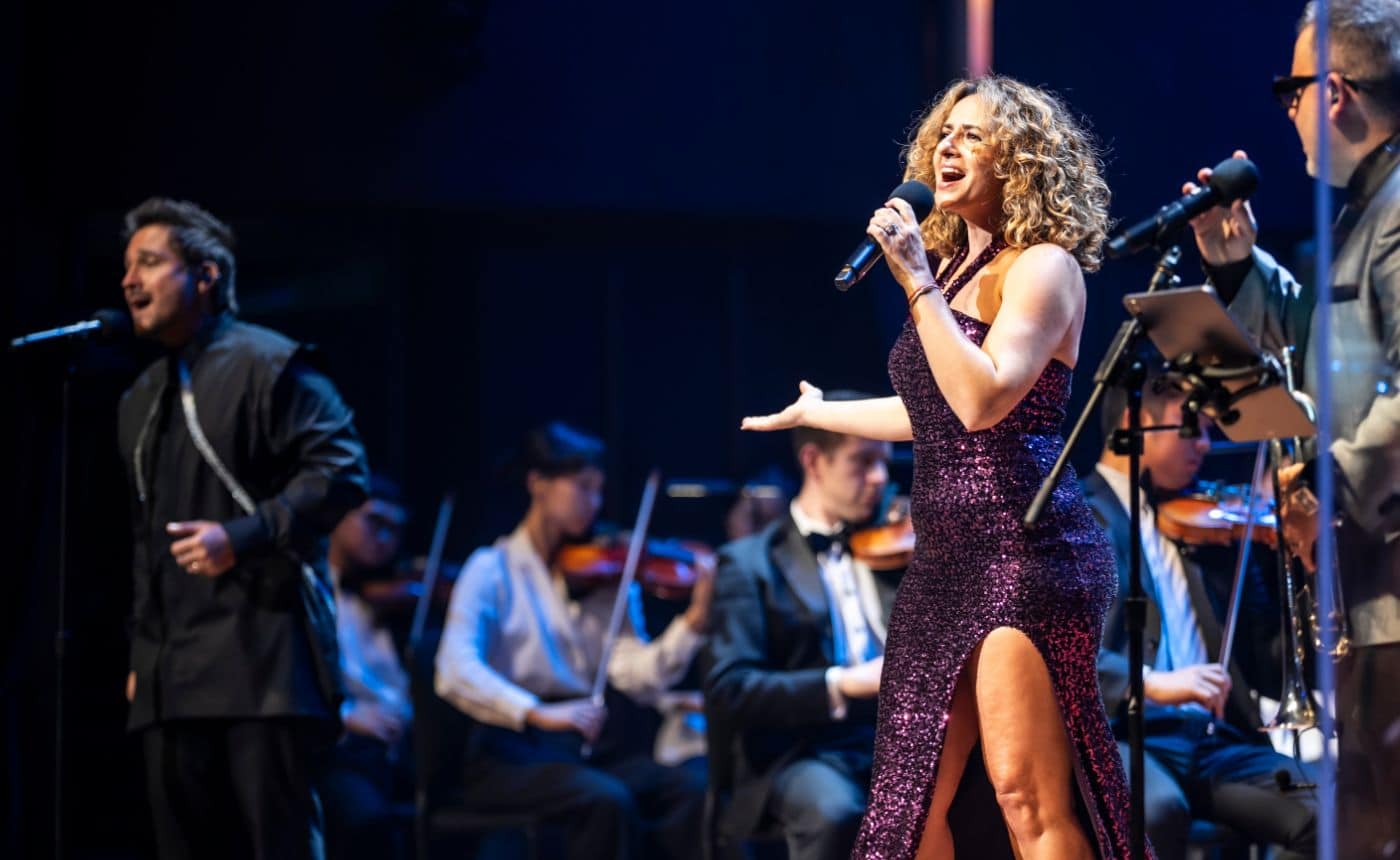10 Jewish composers you should listen to right now
by Kathleen Sykes
Thank you to Kyleene Johnson, Keith Carrick, Julie McBeth, and Annie Farnbach who made significant contributions to this article.
Throughout history, Jewish composers have contributed some amazing works to classical and popular music. Where would we be without show-stopping musicals like West Side Story or iconic Rhapsodies like Rhapsody in Blue or singable tunes like “Anything You Can Do (I Can Do Better)”?
Here are just some of the best Jewish composers in history that you should listen to right now:
#1 Leonard Bernstein
Where do we even begin talking about how much we love Leonard Bernstein? He was an incredible concert pianist, composer, educator, humanist, and a total classical music bad boy—he was truly a classical music superstar. Not only was he an incredible performer himself—and a total show-off on stage—he revolutionized the world of classical music.
It’s hard to pick just one of his compositions that we love the most, but you can never go wrong with his stunning overture to his operetta “Candide.”
#2 Steve Reich
This was another revolutionary American composer. He was one of the first people to pioneer minimalistic music, and he even used electronic elements throughout his work. In 1981, he composed Tehillim (a Hebrew word meaning “psalms”) as a beautiful tribute to his faith.
#3 Irving Berlin
When you think of some of the best music in classic movie history, you might think of things like “Puttin’ on the Ritz,” “There’s No Business Like Show Business,” and “Anything You Can Do (I Can Do Better).” Also, the classic holiday tune “White Christmas”? He composed that and all of the music in the movie White Christmas for which he won an Oscar.
Here’s a recording of one of his big hits, “Blue Skies”:
https://www.youtube.com/watch?v=epRXoS_P0lk
#4 George Gershwin
There’s no doubt that Gershwin’s music is ubiquitous! He could score anything: movies, operas, piano concertos, rhapsodies, you name it. He was quite the musical genius—he moved to France as a young man to learn from giants in the musical community like Nadia Boulanger and Maurice Ravel only to be rejected by them because they thought it would ruin his already great work. In Ravel’s rejection letter to Gershwin, he allegedly stated: “Why become a second-rate Ravel when you’re already a first-rate Gershwin?”
Throughout his life, he composed memorable works like An American in Paris, Rhapsody in Blue, and little ditties like I’ve Got Rhythm.
#5 Erich Korngold
Erich Korngold was one of the founding fathers of film music. He was a child prodigy who scored ballets, solo instrumental works, and even operas from a young age. During the rise of Nazi Germany, the Austrian composer left Europe for Hollywood to score films and earned two Academy Awards or his work.
He later grew disillusioned with film music and returned to his first love: creating music for the stage and concert hall. One of our favorite works by him is his violin concerto which features themes from his early work in film scores.
#6 Phillip Glass
Phillip Glass is a revolutionary composer and is widely viewed as one of the most influential composers of the 20th century. His work is notably minimalistic and can be hypnotic to listen to. While it may sound straightforward or even simple, it is quite difficult to perform. He made headlines recently for one of his more recent works, Ahknaten, which The Metropolitan Opera performed in a lavish new production.
#7 György Ligeti
Ligeti is one of the most notable avant-garde composers in the 20th century. You might not recognize him by name, but if you’re a fan of movies like Godzilla (2014), Shutter Island, The Shining, and 2001: A Space Odyssey, you’ve definitely heard his work—excerpts of his pieces were included in these films.
#8 Giacomo Meyerbeer
Here was a composer who had the Midas touch. Hector Berlioz once described Meyerbeer as having “not only the luck to be talented, but the talent to be lucky.” He took the opera world by storm and became an incredibly successful and respected composer.
Nevertheless, he still wrote incredible works well into his later years including choral works for synagogues and a coronation march for William I of Prussia.
#9 Arnold Schoenberg
If Beethoven is known for the four notes that changed musical history, then Schoenberg should be known for the 12 tones that changed musical history. Much of his revolutionary work was atonal, experimental, and revolutionary. During one period of his life, he created a technique to ensure that all 12 notes of the chromatic scale sounded as often as one another in a piece of music to prevent the emphasis of any one note. in an octave to give his music a clear, simple texture.
#10 Gustav Mahler
No list of some of the greatest composers in history is complete without Gustav Mahler. In fact, you might notice we’re pretty big fans of him—under Maurice Abravanel we were the first orchestra to record all of his works and we recently re-recorded Mahler Symphony No. 1 and No. 8 with Thierry Fischer.
Mahler showed musical gifts from an early age and went on to make a splash with his career. He was known for being an animated conductor on stage and created MONUMENTAL symphonies.
https://www.youtube.com/watch?v=_JXMFbGRyII











